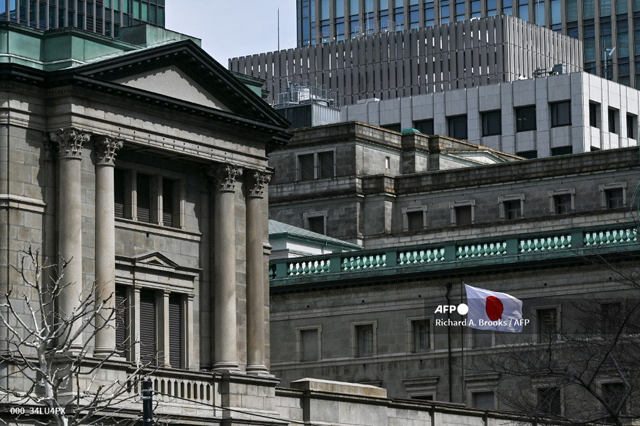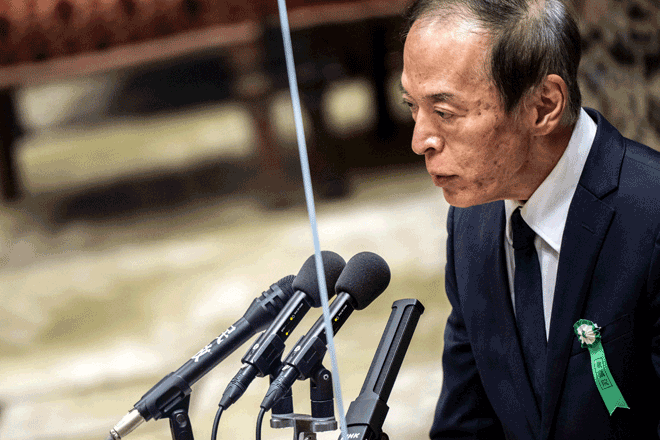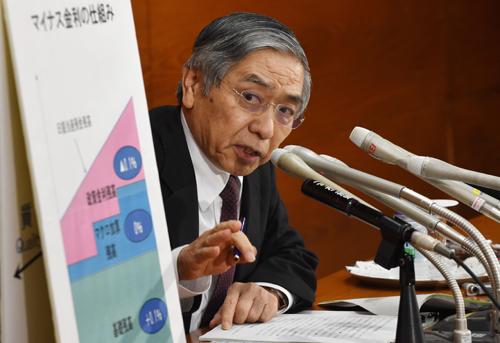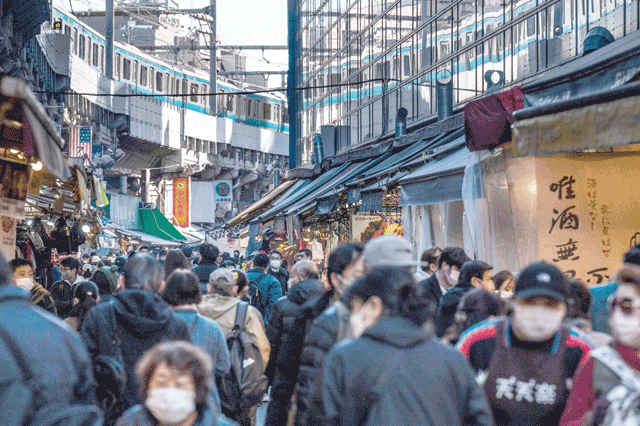You are here
Bank of Japan hikes rates for first time since 2007
By AFP - Mar 19,2024 - Last updated at Mar 19,2024

The Japanese flag flies over part of the Bank of Japan (BoJ) headquarters complex in central Tokyo on Tuesday (AFP file photo)
TOKYO — Japan's central bank pulled the plug on Tuesday on its ultra-aggressive monetary stimulus programme, hiking rates for the first time since the global financial crisis.
The Bank of Japan's (BoJ) outlier policy of negative rates and massive asset purchases was aimed at jump-starting economic growth and price rises after the "lost decades" of stagnation and deflation.
But on Tuesday, following months of speculation, the BoJ finally changed its policy rate range from -0.1 per cent to between zero and 0.1 per cent, in its first hike since 2007.
Officials "assessed the virtuous cycle between wages and prices" and concluded that "the price stability target of 2 per cent would be achieved in a sustainable and stable manner", it said.
The move will make loans more expensive for consumers and businesses, but banks will be able to earn more money from lending.
It will also increase Japan's bill for servicing the national debt, which at around 260 per cent of national output is one of the world's highest.
The BoJ also called an end to other unorthodox policies including its yield curve control programme, which allows bonds to move in a tight band, and the purchase of exchange-traded funds because they had "fulfilled their roles".
But it said it would keep buying long-term government bonds.
Taro Saito, senior economist at NLI Research Institute, told AFP that the move was a "great step for the BoJ towards normalisation of its monetary policy it has long craved for".
The US Federal Reserve and other central banks yanked up rates to rein in inflation after Russia's 2022 invasion of Ukraine.
But despite inflation also exceeding four per cent at one point, the BoJ kept its main rate below zero, where it has been since 2016.
Because negative interest rates mean banks lose out by parking capital with the BoJ, the policy was aimed at encouraging them to lend to businesses.
The policy has sharply weakened the yen against the dollar, which is good news for exporters but not for consumers as it made imports more expensive.
The yen fell past 150 per dollar and stocks gained as the BoJ's comment that conditions would remain accomodative poured cold water on expectations of more hikes.
"For the BoJ to take a next step, which will probably be a rate hike, a hurdle is high — it has to have clearer signs that the economy is improving," said Saito.
Wage hikes
Inflation has been at or above the BoJ's target of two per cent for almost two years.
But the BoJ wanted more evidence of rising wages and that inflation was driven by demand instead of temporary factors.
The final piece of the jigsaw appears to have come on Friday when Japan's largest trade union secured its biggest wage hike since 1991.
BoJ chief Kazuo Ueda told a news conference on Tuesday that the outcome was "an important factor in making our decision".
But Stefan Angrick at Moody's said since there is no certainty there will be broader pay gains or stronger domestic demand, adding that the BoJ "is rushing".
"In the past, when the BoJ has been too eager to tighten policy, a downturn soon followed. Although (Tuesday's) change is not large enough to do Japan's economy in, it wouldn't take much to do further damage," he said.
"The BoJ is treading on thin ice."
Related Articles
TOKYO — The Bank of Japan's (BoJ) longstanding monetary easing policies are "appropriate", its next Governor Kazuo Ueda told parliament on F
TOKYO — The Bank of Japan (BoJ) unexpectedly cut a benchmark interest rate below zero on Friday, stunning investors with another bold move t
TOKYO — Prices in Japan rose at their fastest pace since 1981 in November, data showed Friday, fuelled in part by higher energy costs.Core c














